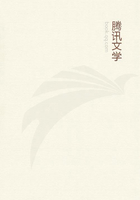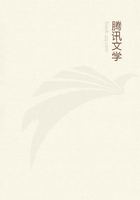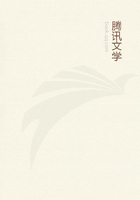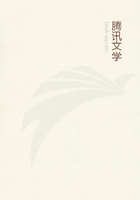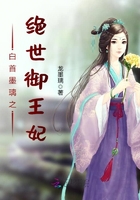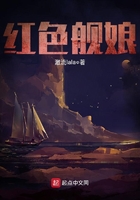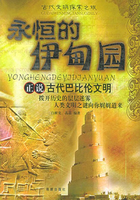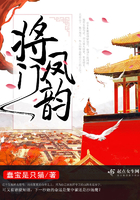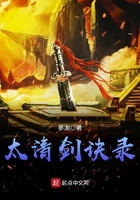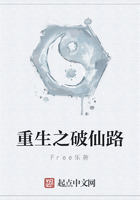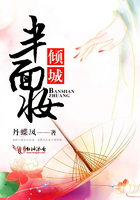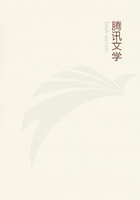And then did all these beautiful grasses grow up of themselves?
You ought to know that they most likely did not. You know the new enclosures?
Yes.
Well then, do rich grasses come up on them, now that they are broken up?
Oh no, nothing but groundsel, and a few weeds.
Just what, I dare say, came up here at first. But this land was tilled for corn, for hundreds of years, I believe. And just about one hundred years ago it was laid down in grass; that is, sown with grass seeds.
And where did men get the grass seeds from?
Ah, that is a long story; and one that shows our forefathers (though they knew nothing about railroads or electricity) were not such simpletons as some folks think. The way it must have been done was this. Men watched the natural pastures where cattle get fat on the wild grass, as they do in the Fens, and many other parts of England. And then they saved the seeds of those fattening wild grasses, and sowed them in fresh spots. Often they made mistakes. They were careless, and got weeds among the seed-- like the buttercups, which do so much harm to this pasture. Or they sowed on soil which would not suit the seed, and it died.
But at last, after many failures, they have grown so careful and so clever, that you may send to certain shops, saying what sort of soil yours is, and they will send you just the seeds which will grow there, and no other; and then you have a good pasture for as long as you choose to keep it good.
And how is it kept good?
Look at all those loads of hay, which are being carried off the field. Do you think you can take all that away without putting anything in its place?
Why not?
If I took all the butter out of the churn, what must I do if I want more butter still?
Put more cream in.
So, if I want more grass to grow, I must put on the soil more of what grass is made of.
But the butter don't grow, and the grass does.
What does the grass grow in?
The soil.
Yes. Just as the butter grows in the churn. So you must put fresh grass-stuff continually into the soil, as you put fresh cream into the churn. You have heard the farm men say, "That crop has taken a good deal out of the land"?
Yes.
Then they spoke exact truth. What will that hay turn into by Christmas? Can't you tell? Into milk, of course, which you will drink; and into horseflesh too, which you will use.
Use horseflesh? Not eat it?
No; we have not got as far as that. We did not even make up our minds to taste the Cambridge donkey. But every time the horse draws the carriage, he uses up so much muscle; and that muscle he must get back again by eating hay and corn; and that hay and corn must be put back again into the land by manure, or there will be all the less for the horse next year. For one cannot eat one's cake and keep it too; and no more can one eat one's grass.
So this field is a truly wonderful place. It is no ugly pile of brick and mortar, with a tall chimney pouring out smoke and evil smells, with unhealthy, haggard people toiling inside. Why do you look surprised?
Because--because nobody ever said it was. You mean a manufactory.
Well, and this hay-field is a manufactory: only like most of Madam How's workshops, infinitely more beautiful, as well as infinitely more crafty, than any manufactory of man's building.
It is beautiful to behold, and healthy to work in; a joy and blessing alike to the eye, and the mind, and the body: and yet it is a manufactory.
But a manufactory of what?
Of milk of course, and cows, and sheep, and horses; and of your body and mine--for we shall drink the milk and eat the meat. And therefore it is a flesh and milk manufactory. We must put into it every year yard-stuff, tank-stuff, guano, bones, and anything and everything of that kin, that Madam How may cook it for us into grass, and cook the grass again into milk and meat. But if we don't give Madam How material to work on, we cannot expect her to work for us. And what do you think will happen then? She will set to work for herself. The rich grasses will dwindle for want of ammonia (that is smelling salts), and the rich clovers for want of phosphates (that is bone-earth): and in their places will come over the bank the old weeds and grass off the moor, which have not room to get in now, because the ground is coveted already. They want no ammonia nor phosphates--at all events they have none, and that is why the cattle on the moor never get fat. So they can live where these rich grasses cannot. And then they will conquer and thrive; and the Field will turn into Wild once more.
Ah, my child, thank God for your forefathers, when you look over that boundary mark. For the difference between the Field and the Wild is the difference between the old England of Madam How's making, and the new England which she has taught man to make, carrying on what she had only begun and had not time to finish.
That moor is a pattern bit left to show what the greater part of this land was like for long ages after it had risen out of the sea; when there was little or nothing on the flat upper moors save heaths, and ling, and club-mosses, and soft gorse, and needle- whin, and creeping willows; and furze and fern upon the brows; and in the bottoms oak and ash, beech and alder, hazel and mountain ash, holly and thorn, with here and there an aspen or a buckthorn (berry-bearing alder as you call it), and everywhere--where he could thrust down his long root, and thrust up his long shoots-- that intruding conqueror and insolent tyrant, the bramble. There were sedges and rushes, too, in the bogs, and coarse grass on the forest pastures--or "leas" as we call them to this day round here--but no real green fields; and, I suspect, very few gay flowers, save in spring the sheets of golden gorse, and in summer the purple heather. Such was old England--or rather, such was this land before it was England; a far sadder, damper, poorer land than now. For one man or one cow or sheep which could have lived on it then, a hundred can live now. And yet, what it was once, that it might become again,--it surely would round here, if this brave English people died out of it, and the land was left to itself once more.

